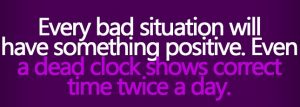
While being negative once in a while is human, entrenched negativity can be hard to be around and is often hard for coaches to work with. However, negative language gives the coach important clues into how their client’s see the world and how they might be limiting themselves, for example:
- Black and white thinking – reducing a complex situations to binary choices or extremes “I’ve completely failed “. “It’s my way or the highway”
- Mind reading – anticipating how others will react and making it a truth “They will find me boring”. “The boss will never let me “
- Crystal ball gazing – assuming how things will be in the future and using those assumptions to justify our present actions ( or in actions) “There is no point trying – it won’t work out”
- Over generalisations – “Everyone knows that ….”. “I always
- Catastrophizing – making a mistakes mean inevitable dire consequences “If I fail this exam that will be the end of my career
- Dis-qualifying the positive – not letting in the positives in ourselves “I might have done a good presentation but anyone can do that”
- Self-Damnations “I’m not the sort of person who …”
Rather than engaging with, and potentially being derailed by the negativity, a coach can use a number of (Cognitive-Behavioural) techniques to encourage the coachee to look afresh at the assumptions they might be making about themselves and their situation.
For example in response to a coachee who says ‘my presentations always go badly’ you could :
- Ask a ‘180 question’ ie a question that leans into the opposite direction implied in the coachees statement. In the example this might sound like ‘give me an example of when a presentation went well’. This reminds a coachee that there probably have been times in the past where they have been effective and helps them to pull forward solutions from previous experiences
- Request evidence from the coachee e.g. – ‘what feedback did you receive on you presentation?’
- Dispute the ‘facts’ as portrayed by the coachee g. ‘so while you had feedback that your opening could have been clearer, overall the feedback was excellent’
- Disputes absolutes e.g. ‘ what, always?’ (Often delivered best with a wry grin!)
- Recognising the unmet need behind the statement e.g. ‘so what I’m hearing is that you would like to be able to present with confidence to a senior audience’. This moves the coachee into talking about what they do want instead of what they are trying to avoid.
- Focus them on what they can control/influence (however small) e.g ’what could you do to manage your nerves’. This helps a coachee to feel less of a victim in a situation by taking back some control of their life
People are often completely unaware of their negativity and how it is shaping their thinking and acting. One of the many useful functions of a coach is to help them look afresh as their assumptions and beliefs, and, if they choose, rewrite a different script for themselves.